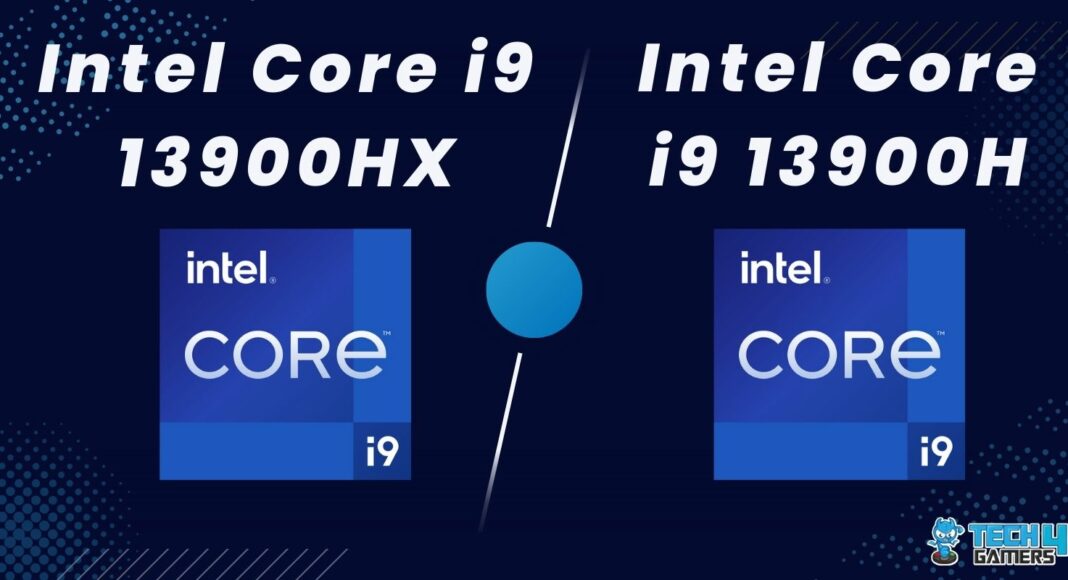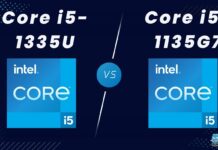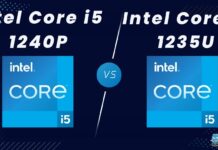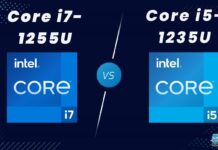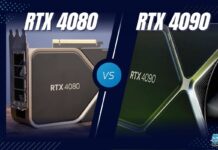Intel Core i9 13900HX
Rated: 9/10
Intel Core i9 13900H
Rated: 7.5/10
Pros And Cons
| CPU | Pros | Cons |
|---|---|---|
| Core i9 13900H | ✅ Faster GPU Clock Speed ✅ Lower TDP | ❌ Lesser CPU Threads ❌ Smaller L3 Cache |
| Core i9 13900HX | ✅ Faster CPU Speed ✅ Higher RAM Speed | ❌Lower GPU Execution Units ❌Lesser Shading Units |
- Starting, we noticed that the Core i9 13900HX boasts a notable 7% advantage in single-core benchmarks, catering to our needs for quick and responsive execution of individual tasks.
- Moreover, using an impressive 47% lead in multi-core benchmarks, the Core i9 13900HX stands out as a top choice for demanding workloads and multitasking scenarios, ensuring smoother performance in resource-intensive computing tasks.
- We found out that the Core i9 13900HX’s support for up to 128GB provides a significant edge in memory-intensive tasks, making it well-suited for applications requiring ample memory resources compared to the Core i9 13900H’s maximum support of 64GB.
- In addition, the Core i9 13900HX’s ECC memory support sets it apart, ensuring heightened reliability and accuracy for critical computing tasks, a feature that the Core i9 13900H lacks.
Core i9 13900HX Vs Core i9 13900H – Comparison Table
| Key Specifications | Core i9 13900HX | Core i9 13900H |
|---|---|---|
| Integrated GPU | UHD Graphics (32EU) | Iris Xe Graphics (96 EU) |
| Performance Cores | 8 | 6 |
| Performance Threads | 16 | 12 |
| Total Cores | 24 | 14 |
| Total Threads | 32 | 20 |
| L3 Cache | 36MB (shared) | 24MB (shared) |
| Socket | BGA-1964 | BGA-1744 |
| GPU Base Clock | 300 MHz | 300 MHz |
| GPU Boost Clock | 1650 MHz | 1500 MHz |
| Cuda Cores | 256 | 768 |
| Execution Units | 32 | 96 |
| Memory Support | Up to 128GB | Up to 64GB |
| ECC Support | Yes | No |
Architectural Differences
Before we delve into the performance metrics, let’s take a moment to understand the foundational variations between the Core i9 13900HX and Core i9 13900H. These architectural disparities not only shape their processing capabilities but also lay the groundwork for the performance comparisons that follow.
- Process Node: Beneath the surface, the Core i9 13900HX and Core i9 13900H share a common ground with their 10nm process node, yet their individual prowess becomes apparent upon closer examination.
- Clock Speed: Setting the tempo, the Core i9 13900HX and Core i9 13900H synchronize their Base Clocks at 2.2 GHz and 2.6 GHz, respectively, all the while reaching a similar yet impressive Boost Clock of 5.4 GHz.
- Memory Support Variation: As we delve into memory horizons, the Core i9 13900HX takes a stride towards extensive memory options, accommodating up to 128GB, whereas the Core i9 13900H settles at a cap of 64GB.
- TDP: In the realm of configurable power, the Core i9 13900HX and Core i9 13900H present distinct TDP ranges, with the former spanning 45-55W and the latter 35-45W.
- Supported Technologies: When it comes to error correction capabilities, the Core i9 13900HX elevates the playing field with ECC memory support, an edge over the Core i9 13900H’s tech portfolio.
In the realm of high-performance processors, the battle between the Core i9 13900HX vs Core i9 13900H unfolds as a captivating showdown. As we delve into their intricacies and delve deep into their benchmark results, join us in uncovering the distinctions and similarities that set these two powerful CPUs apart.
Core i9 13900HX Vs Core i9 13900H – Performance Benchmarks
With a solid grasp of their architectural distinctions, it’s time to witness the Core i9 13900HX and Core i9 13900H in action. Through a series of performance benchmarks, we’ll uncover how these processors fare in real-world scenarios.
Cinebench R23 (Single-Core)
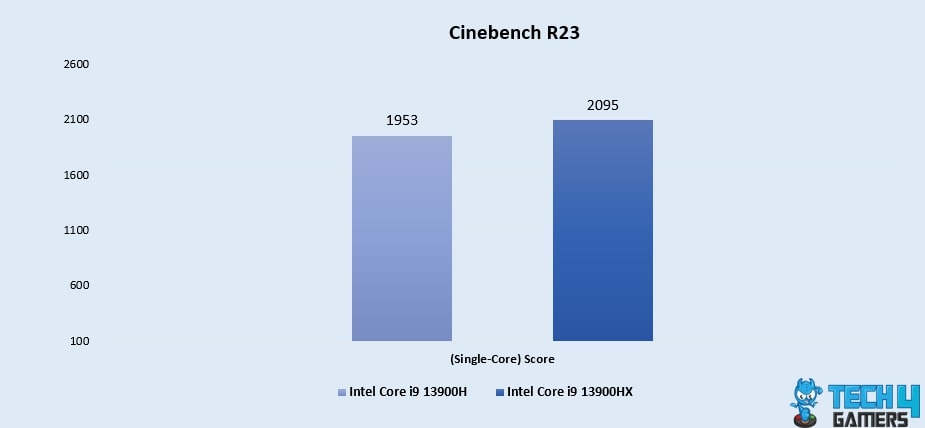
- In our testing, we observed the Core i9 13900HX taking the lead with a 7% advantage, showcasing efficient solitary task execution with a score of 2095, while the Core i9 13900H closely followed at 1953, highlighting their prowess.
Cinebench R23 (Multi-Core)
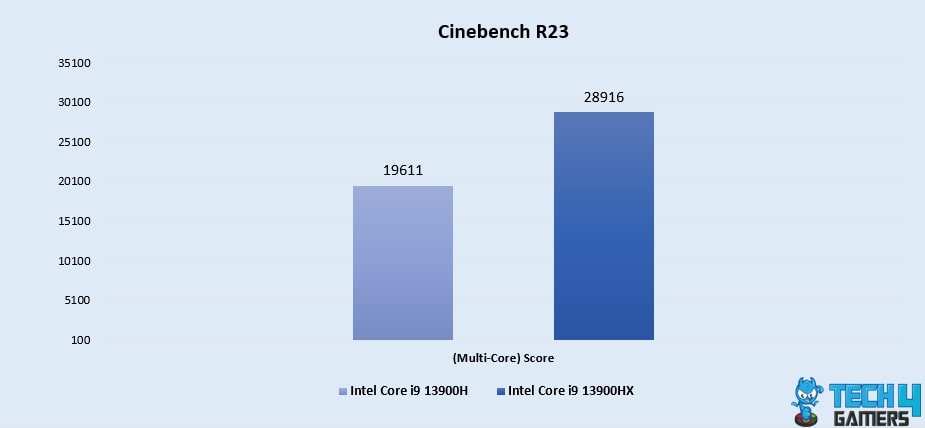
- Moreover, the Core i9 13900HX forges ahead with a substantial 38.3% lead, showcasing its prowess in resource-hungry scenarios, scoring an impressive 28916, while the Core i9 13900H follows suit at 19611, painting a vivid picture of its multi-core capabilities.
Geekbench 5 (Single-Core)
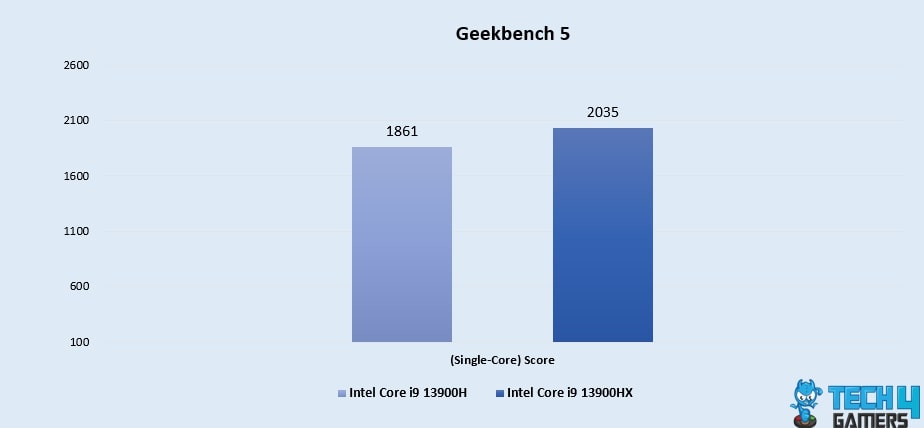
- During our assessment of single-core performance, it became evident that the Core i9 13900HX enjoys an 8.9% advantage, boasting a score of 2035. In contrast, the Core i9 13900H achieves a score of 1861, emphasizing its efficiency in handling individual tasks.
Geekbench 5 (Multi-Core)
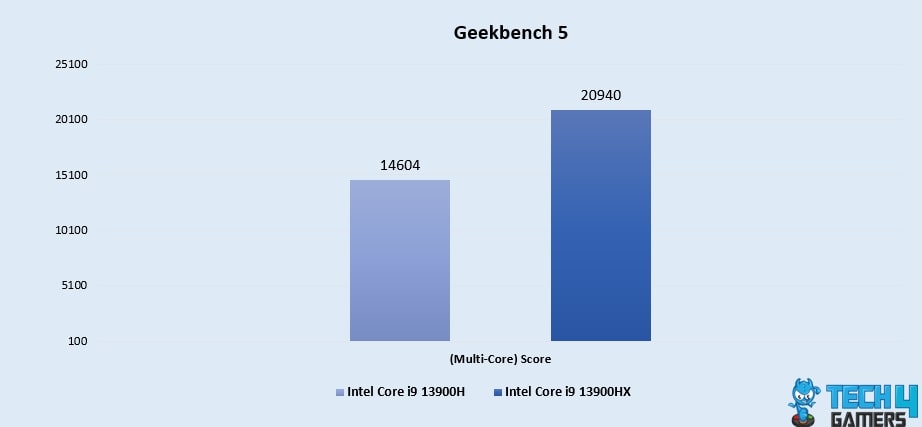
- Unveiling their prowess in multi-threaded scenarios, the Core i9 13900HX marches forward with a compelling 35.6% lead, amassing a score of 20940, while the Core i9 13900H delivers a noteworthy performance at 14604.
Which Chip Is Suitable For You?
Intel i9-13900HX: Our opinion is that for those seeking rapid single-core performance, the Core i9 13900HX stands out with a significant advantage in single-core benchmarks, excelling in individual applications. Additionally, it boasts a remarkable lead in multi-core benchmarks, ideal for demanding workloads and multitasking.
Intel Core i9-13900H: We observed that while the Core i9 13900H supports up to 64GB of memory, the i9 13900HX surpasses it with a maximum support of 128GB, ideal for memory-intensive tasks. Additionally, the i9 13900HX’s support for ECC memory enhances reliability, a feature lacking in the Core i9 13900H.
We recommend you consider buying the Intel i9 13900HX as it has a significant edge over the Intel i9 13900H in the productivity benchmarks performed. Furthermore, it also has the added luxury of the ECC memory support which gives it dominance over the competitor.
More From Core i9-13900HX:
More From Core i9 13900H:
Thank you! Please share your positive feedback. 🔋
How could we improve this post? Please Help us. 😔
[Comparisons Expert]
Shehryar Khan, a seasoned PC hardware expert, brings over three years of extensive experience and a deep passion for the world of technology. With a love for building PCs and a genuine enthusiasm for exploring the latest advancements in components, his expertise shines through his work and dedication towards this field. Currently, Shehryar is rocking a custom loop setup for his built.
Get In Touch: shehryar@tech4gamers.com


